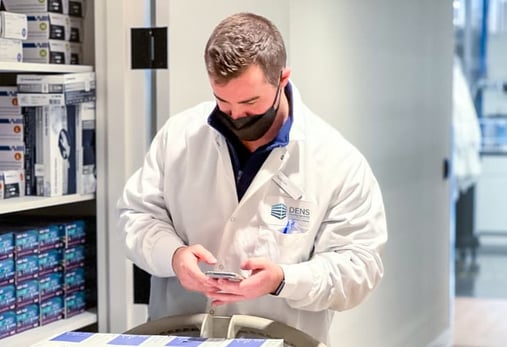Quality control plays a critical role in maintaining the integrity and reliability of research within laboratory environments. In the Biotech industry, where cutting-edge technologies and complex procedures are employed, ensuring the highest level of quality control is essential for accurate experimental results, reproducibility, and the development of safe and effective products.
For example, in pharmaceutical manufacturing, quality control encompasses the testing of raw materials, in-process samples, and final products to identify any impurities, contamination, or deviations from established specifications. Such measures are critical for preventing batch failures, ensuring product consistency, and safeguarding patient health.
Tenets of Quality Control
One key aspect of quality control is the validation and calibration of instruments and equipment. From sophisticated analytical instruments to basic pipettes, every piece of equipment used in the lab must undergo regular calibration and validation to ensure accurate and precise measurements. This step is crucial because even minor deviations in performance can significantly impact experimental outcomes. By maintaining strict calibration protocols, you can improve the reliability of your data.
Another vital aspect of quality control is the implementation of rigorous Standard Operating Procedures (SOPs) and adherence to Good Laboratory Practices (GLP). SOPs provide step-by-step instructions for processes such as sample preparation, handling of reagents, and data recording. These procedures help ensure consistency, minimize human errors, and enhance the reproducibility of experiments. Additionally, following GLP principles ensures that experiments are conducted in a systematic and controlled manner, allowing for accurate data interpretation and comparison.
Implementing a Quality Management System
Implementing a Quality Management System (QMS) in your lab is an important step toward ensuring consistent quality, regulatory compliance, and continuous improvement. Here are a few steps to consider when implementing a QMS:
- Define quality objectives: Begin by clearly defining the quality objectives for your lab. These objectives should align with your organization's mission, regulatory requirements, and customer expectations. Objectives may include achieving a specific level of accuracy in test results, reducing turnaround time, or improving customer satisfaction.
- Develop SOPs: SOPs serve as guides for performing lab processes consistently and accurately. They should cover all aspects of lab operations, including sample handling, equipment maintenance, and data recording. SOPs should be well-documented, easily accessible to staff, and reviewed and updated on a regular basis.
- Establish documentation control: Implement a robust system for document control to ensure that the most current versions of SOPs, protocols, and other important documents are readily available to lab personnel. This requires an electronic document management system, version control mechanisms, and clearly defined approval processes for document changes.
- Monitor and measure performance: Establish a system for monitoring and measuring Key Performance Indicators (KPIs) to evaluate the effectiveness of your QMS. These may include metrics such as turnaround time, error rates, and adherence to regulatory requirements. Regularly review and analyze the collected data to identify areas for improvement and take corrective actions as needed.
Fostering a Culture of Continuous Improvement
Implementing effective quality control measures is crucial to your lab's continuous improvement. This includes enforcing rigorous quality control checks at various stages of the testing process to identify and address errors promptly. Utilizing controls, calibration procedures, and proficiency testing helps ensure the accuracy and reliability of analytical instruments and methodologies.
Promoting a culture of open communication can further drive improvement and growth. Regular team meetings and brainstorming sessions serve as opportunities to develop innovative solutions and implement process improvements.
In summary, maintaining quality control requires ongoing commitment, collaboration, and dedication. By implementing a QMS and fostering a culture of continuous improvement, you can enhance the quality and reliability of your lab operations and deliver the highest quality products and services to your customers.
DENS introduces the people, processes, and data your lab needs to achieve quality control. Not only do we offer expertise in developing SOPs and quality control measures, but we also provide valuable data insights to facilitate evidence-based decision-making and continuous improvement of quality control practices. For more information about our lab services, visit our services page.

Blog Comments